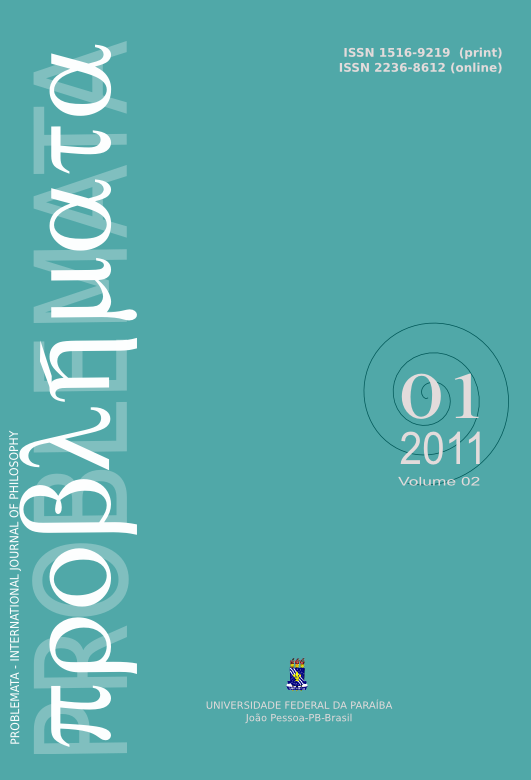MEANING, TRUTH AND ONTOLOGY<a href="http://dx.doi.org/10.7443/problemata.v2i1.10374"><i><b> [doi:10.7443/problemata.v2i1.10374]</i></b></a>
DOI:
https://doi.org/10.7443/problemata.v2i1.10374Keywords:
significatividade, verdade, entidade, semântica, ontologiaAbstract
The problem addressed here is the relationship betweenlanguage and world, whose response since Frege is a semantic theory. The
aim is to uncover the interdependence of concepts like significance, entity
and truth. For this it is make a critical exposition of the compositionalism
and contextualism, and the views of Tarski, Davidson and Dummett. The
thesis is that in these theories the ontology is subsumed to semantics, and
ontological concepts are relativized to a language. The oscillation between
the principles of context and compositionality ends in contextualism and
relativism, just the opposite of the position adopted by Frege and Tarski.
However, contextualism fails to reduce the reference to object to the
remission of expressions to expressions. This suggests a direct relationship
between language and world that was implicit in the semantic tradition.
Downloads
Download data is not yet available.
Downloads
Issue
Section
Papers
License
Authors who publish with this journal agree to the following terms:
- Authors retain copyright and grant the journal right of first publication with the work simultaneously licensed under a Creative Commons Attribution License that allows others to share the work with an acknowledgement of the work's authorship and initial publication in this journal.
- Authors are able to enter into separate, additional contractual arrangements for the non-exclusive distribution of the journal's published version of the work (e.g., post it to an institutional repository or publish it in a book), with an acknowledgement of its initial publication in this journal.
-
- Authors are permitted and encouraged to post their work online (e.g., in institutional repositories or on their website) prior to and during the submission process, as it can lead to productive exchanges, as well as earlier and greater citation of published work (See The Effect of Open Access).





